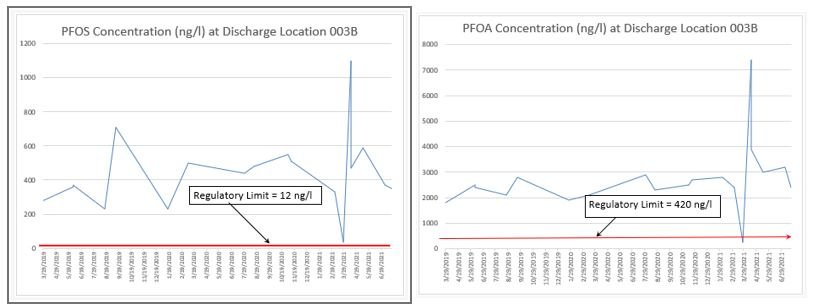Riverview Residential Landfill
Why we need change: Better tax base, landfill health risks, improve quality of life, protect our environment, create quality jobs
Successful Landfill Remediation
DTE Ann Arbor Community Solar project
Development on capped former landfill
Utilizing existing energy infrastructure
More attractive to developers and home owners
Reduce health risks associated with landfill nonpoint source pollution
Santa Clara Landfill housing redevelopment
240 acre capped landfill
Passed appropriate regulatory hurdles
5.7 million square feet of office, 1.1 million square feet of retail space, 700 hotel rooms
$6,700,000,000 investment for mixed-use level cleanup standard
Fairlane Green Retail Center (“The Hill”)
243 Acre former industrial landfill in Allen Park
$46,000,000 investment
Creation of approximately 2,000 permanent jobs
Sustainable tax base
Health Outcomes - PFAS
Health Risks
Landfill wastewater and nonpoint source pollution have negative health outcomes. We need landfills, but it doesn’t make sense to have them hundreds of feet from homes.
Exposure Risks
Landfills have some of the highest concentration of PFAS chemicals of all industrial developments. We are only beginning to understand the long term health impacts of these forever chemicals.
Budget and Safety
The Riverview Landfill claims that it creates a revenue source for the city to maintain fire and police services - but it’s been operating at a loss for quite some time. How is it generating revenue for the city, especially if they need to pay for equipment upgrades to meet Michigan’s new PFAS standards?
Accurate Information
We believe you can’t solve a problem unless you have an accurate assessment of the situation - and clearly a residential landfill is a problem for our water and communities. Why is taxpayer money being spent to create information that perpetuates the notion that a residential landfill is healthy and desirable? We make sure to cite unbiased scientific literature from sources like the United States Environmental Protection Agency.








